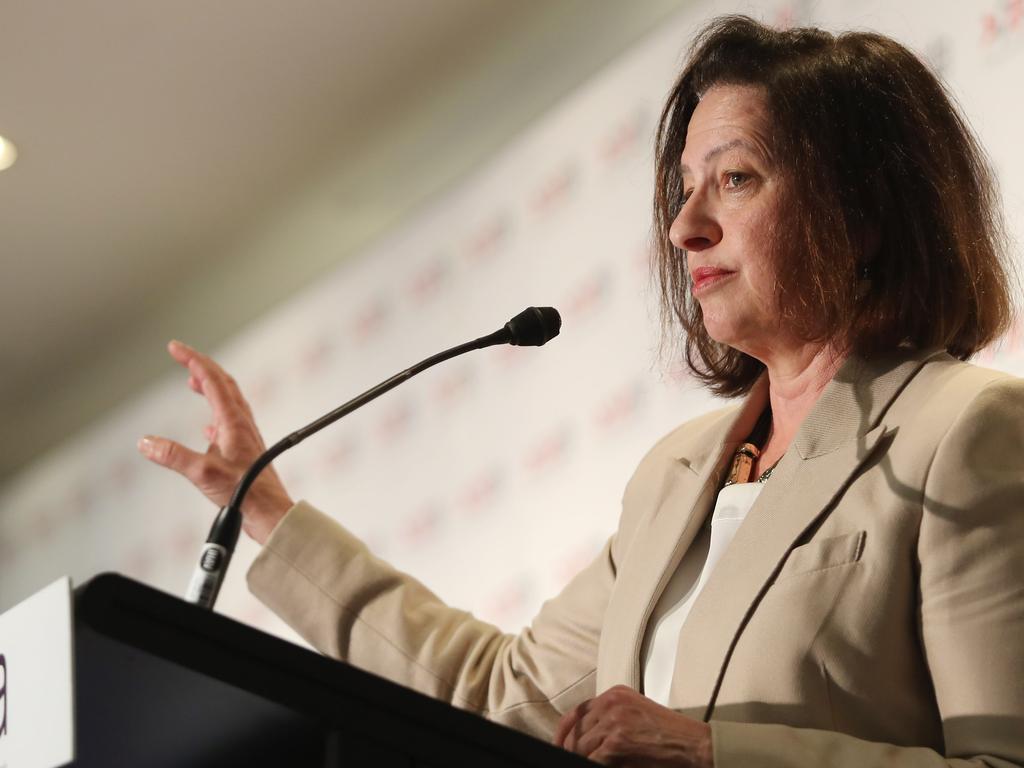Former AMP lawyer alleges hostile behaviour by colleagues
A former senior AMP lawyer’s unfair dismissal case against the financial services giant has hit a stumbling block.

A former senior AMP lawyer’s unfair dismissal case against the financial services giant has hit a stumbling block after efforts to strike out key parts of AMP’s defence and obtain access to key documents were refused six weeks before trial.
Larissa Baker Cook, who served as head of litigation and as general counsel for the company between 2016 and 2019, last October lodged a $2.5m damages claim against AMP, claiming she was exposed to hostile behaviour by some colleagues after bringing the fees for no service issue to attention prior to the Hayne Royal Commission, before being unfairly dismissed for allegedly using confidential documents during a mediation session.
In her statement of claim, Ms Baker Cook says she informed her then supervisor, group general counsel Brian Salter, and departed company leaders Jack Regan, Craig Meller and Catherine Brenner, about the issue that would later claim their scalps in May of 2017, before making official complaints about senior managers and executives in relation to the issue.
From that point on Ms Baker Cook alleges she was subjected to “harassment and bullying” by Brian Salter, Jack Regan, former AMP Advice chief risk officer Pally Bargri and former managing director of Charter Financial Planning, Neil Swindells.
After being appointed alongside Brian Salter to be the group executives responsible for AMP’s response to the Royal Commission in 2018, Ms Baker Cook made “complaints or inquiries” to Mr Salter about their work, resulting in further bullying, including from government relations head Alastair Kinloch, causing her to suffer “depression, stress and anxiety.”
But AMP alleges that Ms Baker Cook badmouthed many of the executives she accused of bullying her in front of members of an external law firm as well as Mr Salter’s successor, David Cullen, whose ability to perform his role she allegedly disparaged.
Furthermore, AMP claims that Ms Baker Cook was being “performances managed” due to her “patronising” approach, her “poor inter-personal skills” and “emotional intelligence” and her “inability to work as part of a cohesive team.”
She was officially terminated in June 2019 after allegedly using confidential documents at a mediation related to these issues – but Ms Baker Cook says she received these documents legitimately.
In a federal court directions hearing on Friday, Ms Baker Cook’s lawyer Kylie Nomchong made an unsuccessful attempt to strike out the allegation that Ms Baker Cook was being performances managed on the basis that her performance was never monitored and recorded in line with AMP Policy.
“There is no evidence to support it and secondly, and probably more importantly, it’s exacerbating damage to the applicant,” Ms Nomchong said.
“It should be struck out on the basis that it is oppressive.”
However, Justice Margaret Jagot said the idea of striking out a key element of AMP’s defence so close to the trial was an “unattractive and unappealing idea”.
Ms Nomchong also sought to have a cache of documents provided by AMP through discovery to support Ms Baker Cook’s statement of claim, noting that she had no access to any of her AMP work emails or calendar details to assist in her case.
AMP’s counsel Arthur Moses said that the documents requested were of little relevance to the case and impossible to compile in the six weeks before trial.
Amid the documents requested were emails showing that “a large number of AMP employees were engaged in irregular, inappropriate and perhaps illegal practices” in relation to the fee for no service scandal, “yet they were permitted … to go on paid leave and allowed to resign,” Ms Nomchong said.
Justice Jagot refused to grant discovery of each category and said Ms Baker Cook’s team should work out with AMP which specific documents were required, despite Ms Nomchong saying she had sought to consult with AMP on discovery since April 2020.
If you really want things that are specified … you can be specific about documents reporting those things, if they exist, but on the evidence as drafted, it is an oppressively broad category,” Justice Jagot said.
“I’m hoping you don’t come back to me, I’m hoping you work it out with the respondent.”
“I really do not think they are targeted enough at all.”
Ms Baker Cook’s interlocutory application was dismissed without an order for costs.
The hearing will commence on November 9.






To join the conversation, please log in. Don't have an account? Register
Join the conversation, you are commenting as Logout